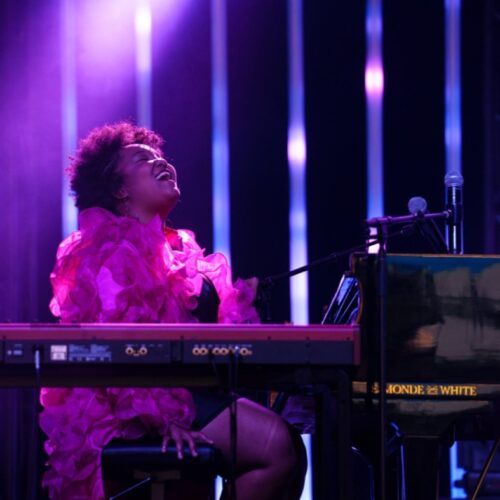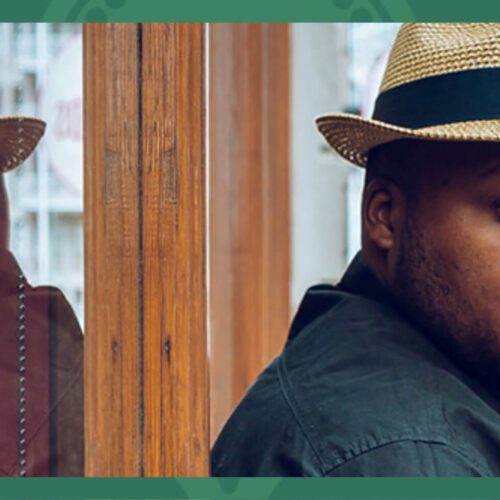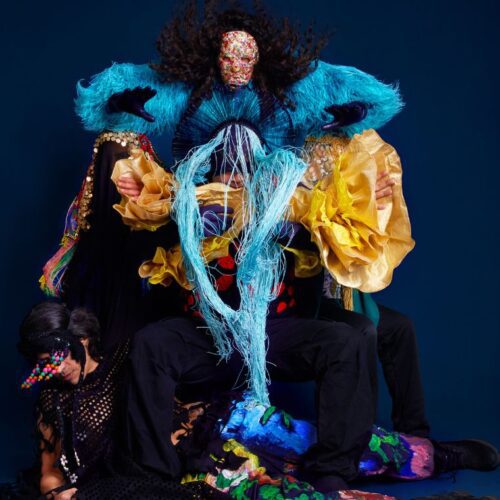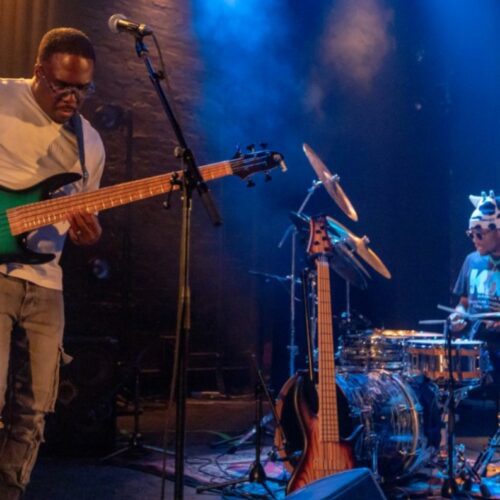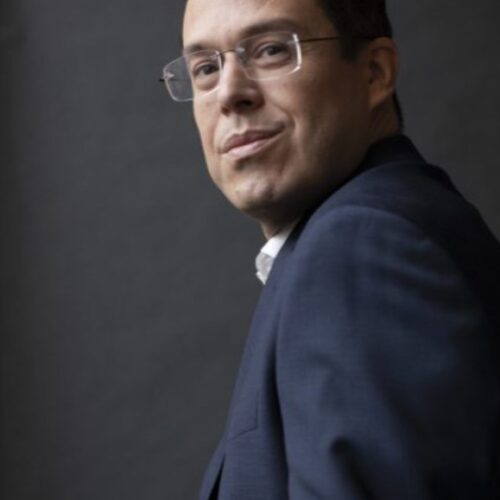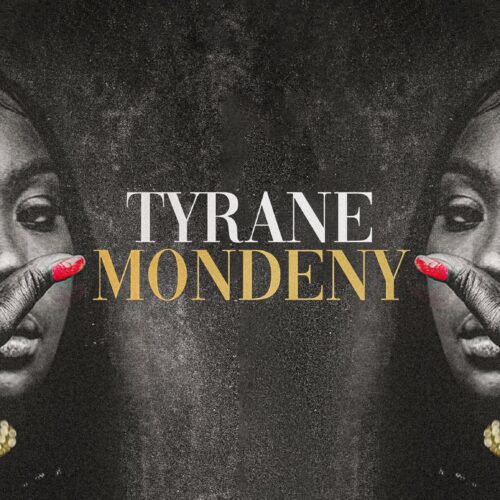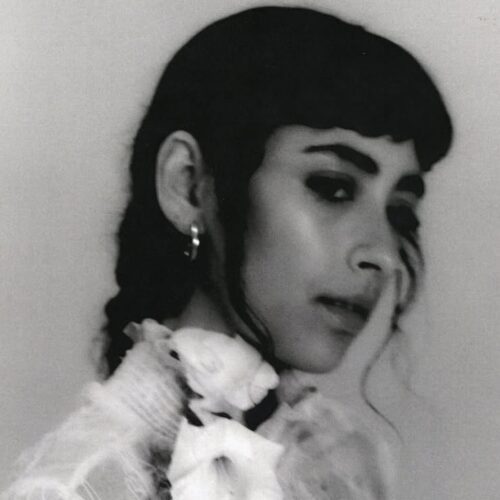Additional Information
Anika made a name for herself in 2010 with a self-titled debut album with Geoff Barrows (Portishead) and the other members of Beak, while living in Bristol. With her Nico looks, cool beauty, German accent and mechanical art-pop songs, Annika Henderson had no trouble winning over an audience with more avant-garde tastes. In 2013, after the Anika EP, the German-British singer became more discreet, collaborating here and there with various artists such as Tricky, T.Raumschmiere, Dave Clarke and Shackleton. In 2016, she joined the Mexican band Exploded View, with whom she recorded two albums and an EP. Aside from the single “No More Parties in the Attic”, also released in 2016, Anika hasn’t released anything under her own name, until the very recent Change, endorsed by the renowned Sacred Bones label and co-produced by her and Martin Thulin of Exploded View.
Joined at her home in the Berlin countryside, the former political journalist revealed the background of the creation of this second album, the reasons for her semi-silence, the changes in her life and her music, while confessing in passing her great respect for Nico.
PAN M 360: Change is the title of your new album. It’s a very significant word – what does it mean to you?
Anika: This title means so much, but so many different things. It means on the one hand that there are so many changes in the world right now. I don’t know where to start because there have been so many changes in the last year – the coronavirus, the rise of the extreme right, the different social upheavals… But this title also implies personal changes, because a lot of things have happened in the last ten years. So yes, there has been a lot of change and that is indeed the main theme of my album.
PAN M 360: There are also some changes in the music. What’s changed compared to your last album?
Anika: The first album was made with Beak, quite simply, without any specific goal, we didn’t even think about making an album with these songs. We were only venting about stuff. For the second album, they weren’t even there. My plan was to go back to Bristol and record there, but with the pandemic that just wasn’t possible. So I had to do things differently. I recorded by myself in Berlin and fortunately one of the members of Exploded View came to join me. So yes, it’s different; I didn’t want to pretend I was in a studio in Bristol while I was stranded in a studio in Berlin, I didn’t want to pretend the last ten years hadn’t happened, you know? That would be kind of sad.
PAN M 360: So what would you say is different? Is it less dubby?
Anika: Well, it’s different because Beak aren’t playing the music! The whole thing changes. I’m playing most of the instruments while the live drums are done by Martin Thulen from Exploded View, and he has wide, eclectic tastes, but the reason I really wanted to work with him is because of his understanding of post-rock stuff. I kind of wanted it to be a bit different, it was a conscious decision. I didn’t want to force this dubiness. I love dub, but at the same time I’m not gonna make a dub record… I mean, I don’t want to force it if I’m working with people who are not into that music as much as I am. That’s one thing I really noticed about living in Germany, it has a very different relation with music, especially with dub. In England it’s much easier to come across people who have a lot of different understandings of different types of music, whereas here it’s just not there. Here, it’s rock and that’s it. Of course, Berlin is obviously pretty diverse, but a thing like dub is not much there.
PAN M 360 : Would it be safe to say that there are maybe more elements of krautrock in this new album?
Anika: Hmm… maybe. Like I said, I didn’t sit down and said to myself, “I’m now going to make a krautrock album or a dub album”, it just became what it was. And it obviously has some slight elements of dub in there. A lot of it I recorded in my studio on my own. The thing that was lost, I think, was the drums, because I programmed the drums on an electronic drum machine and then when Martin came, he adapted it for live so the sound of the drums became its own thing. There were not dubby drums like, say, when I was working with Geoff, this was a very different thing. So yes, there was a lot more kraut. The way I write is like a journey. Some of the songs are more structured, more like pop songs, but most of the time the way I write is like a weird journey from the beginning to the end. “Freedom” and “Finger Pies”… these songs were just me jamming alone in my studio one night with some weird synths. If anything, we had to tame these ideas to put it on the record. So yeah, it definitely has a kraut thing but that was just from life you know, it’s the way it was, the way it was written. And to be honest, that’s what lockdown felt like, this ongoing endless sausage, when is this gonna end (laughs). Just imagine a kraut band surfing along it. You have to play a little bit longer, a little bit longer, and then you just keep playing as lockdown extends.
PAN M 360: Tell me about the album’s closing song “Wait For Something”, which is a bit different from what you have done before.
Anika: Yes, definitely! Before the lockdown, I wrote a load of demos, and a lot of them were on the guitar because that’s how I often start, with just the guitar. And also because I had nothing else than this classic guitar. So “Wait For Something” is the only song that made it from the old batch of songs that I wrote before. I felt that it had somewhere to go, but I only had a beginning, so when I played it to Martin and we were trying to work it out, we extended it and it became so cheesy, and then Martin added strings on it. It’s one of the tracks where I just let him go wild, so it became a bit cheesy but I think it’s good to have a mix of stuff, it goes to a lot of different places and I think it’s honest in that way.
PAN M 360: Since you worked with Martin, do you think that there are some similarities with Exploded View?
Anika: Yes, in some ways. That’s why I wanted to work with him, because we’ve known each other for such a long time and we worked so closely together on various albums. We’ve been through so many tours where everything went wrong, we had face to face confrontations and he’s the sort of person that now is ideal to work with because neither of us is scared of saying no, or “that doesn’t sound very good”, and we’re not gonna take it personally. I know also that Martin hasn’t got anything to prove, he was there to help me out. Very often when you collaborate with someone more in the production role, they kind of start molding it into what they think it should be, and I did not want that to happen! But Geoff is not like that, he’s pretty laid back. But a lot of people would think, “oh, it can become post-punk” or something else, and they start changing things. I just wanted this album to be weird and I don’t have any ideas what it is. I mean, there are a lot of different genres, but I didn’t want it to be… ordered. So that was nice about working with Martin. Plus he can teach me a lot because I really wanted to co-produce it, I knew what I wanted to do with it.
It was a really focused task, from the depth of my soul. There was no energy left for anything else after that.
PAN M 360 : Your first album came out in 2010 and then you did an EP in 2013. Aside from your work with Exploded View and a few collaborations, how come it took so long for you to put out another album under your name?
Anika: It never seemed right. There were a lot of demos made in that time though, but it just felt too forced and I didn’t have the tools that I needed in order to put across what I wanted. And Geoff kept saying to me, “we’ll help you do the next album, just go ahead and write it and bring it to us”, but I didn’t know how to write an album! So I went into that long investigation of trying to learn how to write an album because I’ve never been to music school or anything. I did a lot of collaborations where I could learn something. And then I started Exploded View. We thought of naming the project Anika but then it didn’t feel right. It didn’t feel like it gave the musicians credit, and it was also a new project. I think it would have really killed it if we came out with something that sounded the same as my first album.
PAN M 360: You used to be a political journalist for a little while. Does politics affect your music?
Anika: Yes, definitely. The world is political, everything is political. Everything we do is based on politics. All this stuff I’ve written, it’s about life, it’s about experiences, so it’s definitely political.
PAN M 360: There are three videos from the new album that were released, “Rights”, “Change”, and “Finger Pies”. You can see the same kind of aesthetic from one video to the other and also a certain emphasis on the clothes, all very chic and original.
Anika: It’s weird because there were very different people involved. I choose to work with very specific people for very specific reasons. We filmed those clips in Berlin which is a place where I lived for 10 years, I just recently moved out. So the videos are quite Berlin in a way, but it’s not because they’re trying to be Berlin, it’s just that this place has been my life for years. I think it’s nice to put it across in a video and just work with people that I care about, they’ve been part of my life for the last 10 years and they were all saying, “Yes! You’re finally releasing something!” So I had to make them part of it as well. The styling was done by a friend of mine, except for the “Change” video. She’s been a good friend for years and I used to live in the back of her clothing store at one point, surrounded by mannequins and these crazy, inventive clothes that she used to make, so it all symbolizes this whole journey, or part of it. So yes, she makes nice clothes. That’s the fun of it all, you know? You test your own boundaries or limits, especially with “Finger Pie”… people are often trying to tell you who you are, what to do, or how you should dress… That’s why I’m constantly changing skin, you see? I don’t want to be put in one corner, it’s suffocating. I think it’s natural for artists to change in that way. Again, that’s one of the reasons the album is called Change. Some artists stay the same, but if you look at the ones that really sustained through the years, they were okay to keep changing, they changed with the times. Imagine if the Beatles wore their suits the whole time! They’d be stuck there with their same stupid little haircuts for years, and try to squeeze into these tight little suits.
PAN M 360: Well, the Ramones did exactly that…
Anika: (laughs) True, but I guess it’s because they were messed up since the beginning, you know. For them, it was more a question of attitude. For them, it’s a lifelong sentence (laughs). It’s like Lydia Lunch… I love Lydia Lunch. Well, she got a lot of criticism, last year I think, because she became a yoga teacher… “How can Lydia Lunch become a yoga teacher?” So what? I didn’t have any problem with that, she can do what she wants!
PAN M 360: You often have been compared to Nico. Everytime we read something about you, there is a Nico comparison, even in the press release I was sent. Aren’t you tired of that?
Anika: It was fair enough in the beginning because people are trying to place you somewhere but by now… I don’t know… I mean, I like Nico, I have a lot of respect for her, she is a very dark character. But last year, I put that whole comparison to rest, at least for myself, because I accepted this project with a string orchestra in Berlin, the Solistenensemble Kaleidoskop. They’re kind of the rebels of the string scene, and we played Nico’s Desertshore album. We did it only twice because of the lockdown, and we worked so long on it. We were working through the internet, then we had masked rehearsals… But it was such an interesting project. Before that, I avoided Nico because of this comparison, somehow. But that’s the way it is. She still got there first!

